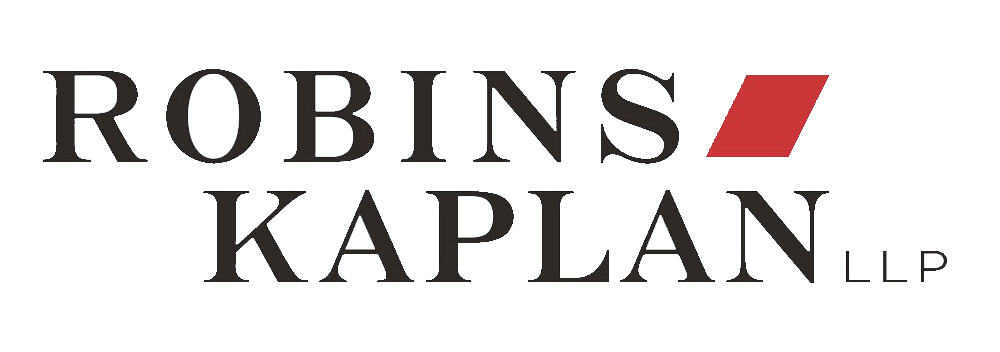Patrick Arenz is a partner and trial lawyer with Robins Kaplan. According to IAM, Patrick is an “excellent, thorough, and focused cross-examiner.” He handles high-stakes disputes for a diverse set of clients, ranging from Fortune 100 companies to small inventor-led companies and individuals. His practice focuses on patent and copyright infringement matters, trade secret misappropriation, breach of contract disputes, and business and individual tort cases. He is equally adept at representing defendants, and has handled competitor-versus-competitor patent cases on both sides of the “v.” His cases have garnered media attention from outlets including The New York Times, Star Tribune, and even “The Tonight Show with Jimmy Fallon.” Based on his accomplishments, Patrick was selected for the Minneapolis/St Paul Business Journal’s 40 Under 40 list and the inaugural Bloomberg Law 40 Under 40 list, named a Minnesota Attorney of the Year in 2018, included on the IAM Patent 1000: The World’s Leading Patent Professionals list, and named a Legal Media Group Americas Rising Star 2019 Winner for Best in Litigation: Trial Lawyer.
Patrick has honed his trial skills in courtrooms across the country, and spent his early career working alongside renowned trial lawyers, like Ronald J. Schutz. He has since tried a wide range of cases, including patent infringement, breach of contract, personal injury, and felony-criminal defense cases. In 2021, he served as lead trial counsel in a personal injury case wherein his team secured a $27.8 million jury verdict on behalf of Dr. Richard Tholen, a top Twin Cities plastic surgeon, who endured an amputated leg after Assist America refused to evacuate him for proper medical care. This verdict has been reported as the largest personal injury verdict in Minnesota history. In 2020, he secured a complete victory in an arbitration for celebrity chef, Chloe Coscarelli, and her business entity that restored her 50% ownership in the “by Chloe” restaurant company she founded and was previously valued in excess of $60 million; enjoined the company from selling retail products; and awarded Chloe a $2.2 million in attorneys’ fees and costs. He also obtained a final judgment in excess of $2 million in favor of his client following a jury verdict against a former employee accused of misappropriating confidential information. In 2016, he tried a breach of license dispute over unpaid royalties, and obtained a $5.7 million verdict that settled on appeal for $13.5 million. Many of Patrick’s cases have resolved successfully before trial, driven by his preparation and readiness for trial.
Patrick is also adept at handling high-stakes appeals. He has argued at the Eighth Circuit, Ninth Circuit, Federal Circuit, and Minnesota Supreme Court and Court of Appeals. In 2020, for example, Patrick obtained a reversal and remand from the Eighth Circuit in Tholen v. Assist America, in which Patrick also serves as trial counsel for Dr. Tholen in his defamation claim. In 2021, Patrick achieved a reversal and remand from the Minnesota Court of Appeals in Smits v. Park Nicollet, finding a triable issue in a wrongful death action over Park Nicollet’s duty to provide reasonable medical care to its mental health patient and his family.

Recent Articles by Patrick Arenz
In 2017, screenwriters Lee Alfred and Ezequiel Martinez Jr. embarked on what would be a five-year journey for their copyright infringement claim against Walt Disney Pictures over the Pirates of the Caribbean franchise. Now, one year after it resolved, their legacy lives on through a new era of copyright litigation in Hollywood. Courts continue to rely on the Ninth Circuit’s decision in the Pirates case to allow screenwriters and other artists to proceed past the pleading stage. With that pendulum swing, litigants in copyright cases over Hollywood films will face a range of undeveloped issues. This article provides a brief recap of the impact from the Pirates case and identifies several open issues that litigants are likely to address in future cases as a result.
Some fictional characters are heroes; others are villains. Some mimic reality and others personify fantasy. And some appear in comic books and video games, while others in television shows and movies. Fictional characters epitomize the essence of creativity. And while copyright law is designed to encourage creative works, the law on character copyrights is in chaos. Every circuit to address this area of copyright law applies a different test. And some tests—like the Ninth Circuit’s—favor behemoth entertainment corporations over individual artists and independent companies. An objective, clear test that honors foundational principles of copyright law is needed. Robins Kaplan LLP petitioned for certiorari with the U.S. Supreme Court today on behalf of the Moodsters Company [link]. Moodsters Co. asks the Court to review the Ninth Circuit’s decision that dismissed its 89-page amended complaint and found the Moodsters characters uncopyrightable as a matter of law. The Supreme Court has never before addressed character copyrights.

![[IPWatchdog Logo]](https://ipwatchdog.com/wp-content/themes/IPWatchdog%20-%202023/assets/images/temp/logo-small@2x.png)

